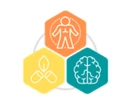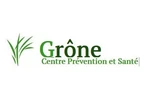Yogashima – Yoga, Massage & Holistic WellnessYogashima in St-Légier-La Chiésaz, Vevey and La Tour-de-Peilz Yogashima is your space for yoga , wellness , and energy healing in the heart of the Riviera region. Located in St-Légier-La Chiésaz , Vevey , and La Tour-de-Peilz , Yogashima offers a holistic approach combining Hatha Yoga , meditation , therapeutic massage , spiritual hypnosis , and sound healing . Yoga classes for all levels The Hatha Yoga classes integrate breathing exercises , asanas , meditation , and deep relaxation to restore the body-mind balance , improve flexibility , strengthen muscles , and reduce stress . Yogashima offers: • Adult yoga classes , suitable for all levels • Dynamic Yoga Flow sessions • Private and semi-private sessions for personalized guidance • Seasonal workshops • Kids’ yoga to support creativity, emotional regulation, focus and self-confidence Massages & energy treatments Yogashima provides a variety of treatments for physical , emotional , and energetic well-being : • Relaxation massages , pain-relief massages , and therapeutic massages • Sound healing (sound bowls, vibrations, energetic harmonization) • Spiritual hypnosis and regression hypnosis for inner exploration • Guided meditation to calm the mind, improve sleep, and enhance presence These practices help release tension , support energetic alignment , reduce stress , and promote genuine self-connection . Locations & schedule • In La Tour-de-Peilz , Yogashima offers in-studio yoga classes . • In St-Légier-La Chiésaz , massages , hypnosis sessions , and energy treatments are available by appointment. • In Vevey , additional time slots are offered for treatments and personalized support . • Possibility of online yoga classes (Zoom) for remote practice. A holistic and personalized approach Yogashima focuses on human connection: mindfulness, grounding energy, and balance. Each session encourages overall well-being , inner harmony , emotional release , and reconnection to the body .












